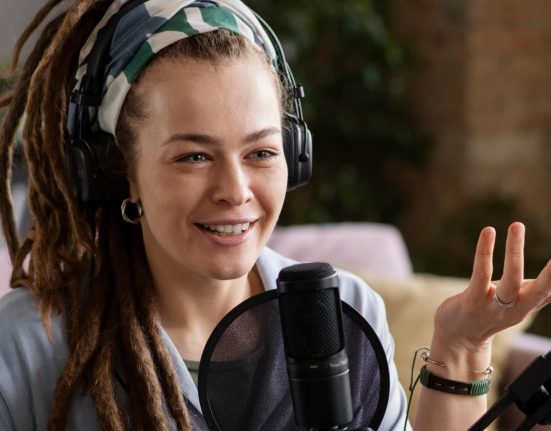Which Is Better for Practicing British Pronunciation: BBC Learning English or VOA?
In the world of English learning, choosing the right resources for improving pronunciation is critical. Among the many available options, BBC Learning English and VOA (Voice of America) are two popular platforms for English learners worldwide. While both offer valuable content for mastering the language, learners interested in improving their British pronunciation often find themselves debating which platform is more suitable. BBC Learning English stands out with its authentic British accent and clear enunciation, while VOA typically offers American English pronunciation. This article will dive into a comparative analysis of both platforms, helping learners decide which is more beneficial for honing British pronunciation.
Overview of BBC Learning English and VOA
Both BBC Learning English and VOA provide high-quality educational content designed to help non-native speakers learn English. However, the primary difference lies in the accents and regional variations they feature. BBC Learning English focuses primarily on British English, offering content that reflects the accent, intonation, and pronunciation typical of native British speakers. On the other hand, VOA, a key resource for English learners globally, primarily uses American English, which has different vowel sounds, intonation patterns, and stress compared to British English.
Understanding British Pronunciation and Its Importance
Before diving deeper into which platform is more suitable for practicing British pronunciation, it’s important to understand the key aspects of British pronunciation. British English has distinct phonetic characteristics that differentiate it from other English varieties, such as American and Australian English. These features include:
1. Vowel Sounds: British English tends to have different vowel sounds, including the short “a” sound in “bath” or “dance,” which is pronounced more like “ah” in British English as opposed to the flat “a” in American English.
2. Consonant Sounds: In British English, consonants like “r” at the end of words are often not pronounced (non-rhotic), whereas American English speakers usually pronounce the “r.”
3. Intonation and Stress: British English often has a different rhythm and stress pattern compared to American English. This includes the tendency to stress the first syllable in words like “advertisement” in British English, whereas American English places the stress on the second syllable.
The importance of mastering British pronunciation goes beyond simply sounding like a native speaker. It also ensures clarity in communication, reduces misunderstandings, and fosters a more authentic connection with the culture and people of the United Kingdom.
Why BBC Learning English is Ideal for British Pronunciation
BBC Learning English is one of the best platforms for learners focused on mastering British pronunciation. Here’s why:
1. Authentic British Accent: The presenters and teachers on BBC Learning English speak with a clear and authentic British accent. This exposure allows learners to familiarize themselves with the rhythm, tone, and nuances of British speech.
2. Comprehensive Pronunciation Guides: BBC Learning English provides specialized resources, including podcasts, videos, and pronunciation exercises, focused explicitly on British pronunciation. These materials are designed to teach learners how to articulate sounds correctly and with accuracy.
3. Variety of British Accents: The BBC offers a range of content that features different regional British accents, including Received Pronunciation (RP), Cockney, and others. This exposure helps learners understand the diversity within British English and improve their ability to comprehend various accents.
4. Focus on Language Nuances: BBC Learning English does an excellent job of teaching not just the pronunciation of words but also the nuances of stress, intonation, and rhythm, all of which are crucial elements of British English pronunciation.
Why VOA Might Not Be Suitable for Practicing British Pronunciation
While VOA offers high-quality English learning materials, it is geared primarily towards learners of American English. Here are the reasons why it may not be as effective for those wishing to practice British pronunciation:
1. American Accent Focus: VOA content features American English pronunciation, which differs significantly from British English in terms of vowel sounds, consonants, and stress patterns. For instance, words like “advertisement” and “schedule” are pronounced differently in the two accents, which can be confusing for learners trying to adopt a British pronunciation.
2. Rhotic Sounds: American English tends to be rhotic, meaning the “r” sound is pronounced at the end of words, whereas in British English, this “r” sound is often silent. For learners aiming for a British accent, exposure to American rhotic pronunciation can be counterproductive.
3. Limited Exposure to British English: While VOA occasionally features British speakers, the content is predominantly based on American pronunciation, limiting opportunities for learners to practice British-specific speech patterns.
Benefits of BBC Learning English for Advanced Learners
For advanced learners aiming to perfect their British pronunciation, BBC Learning English provides an in-depth approach that goes beyond basic pronunciation guides. Here are some ways BBC Learning English helps advanced learners:
1. Detailed Phonetic Breakdown: Advanced learners can benefit from the detailed phonetic breakdowns offered by BBC Learning English. The platform teaches not only how to pronounce sounds but also explains the intricacies of stress, tone, and intonation, which are often difficult to master.
2. Cultural Context and Language Usage: BBC Learning English incorporates language learning with cultural lessons. Learners can understand how British pronunciation fits within the context of British culture, helping them communicate more naturally and effectively.
3. Real-Life Dialogues and Situations: Advanced learners can benefit from real-life dialogues and interviews, providing exposure to authentic conversational British English. This prepares learners for actual interactions with British speakers in various contexts.
Additional Tools for Mastering British Pronunciation
While BBC Learning English is a fantastic resource for British pronunciation, it’s essential to use a combination of tools to enhance learning. Here are a few additional resources:
1. Podcasts and Audiobooks: Listening to British podcasts and audiobooks can provide further exposure to authentic pronunciation. Choose content that features native British speakers to develop a deeper understanding of accent and pronunciation.
2. Language Exchange Programs: Engage in language exchange programs with native British speakers. This allows learners to practice speaking and receive feedback on their pronunciation.
3. Speech Analysis Apps: Apps that analyze speech patterns can help learners identify areas where their pronunciation may need improvement. Some apps allow learners to compare their pronunciation with native speakers.
Conclusion
For learners focusing on mastering British pronunciation, BBC Learning English is undoubtedly the better choice compared to VOA. The platform’s authentic British content, comprehensive pronunciation guides, and focus on language nuances make it ideal for anyone seeking to improve their accent and fluency. While VOA provides excellent resources for American English, its focus on American pronunciation makes it less suitable for learners aiming to perfect their British accent. Combining BBC Learning English with other resources, such as podcasts and language exchange programs, will further enhance learners’ ability to speak with an authentic British accent.











